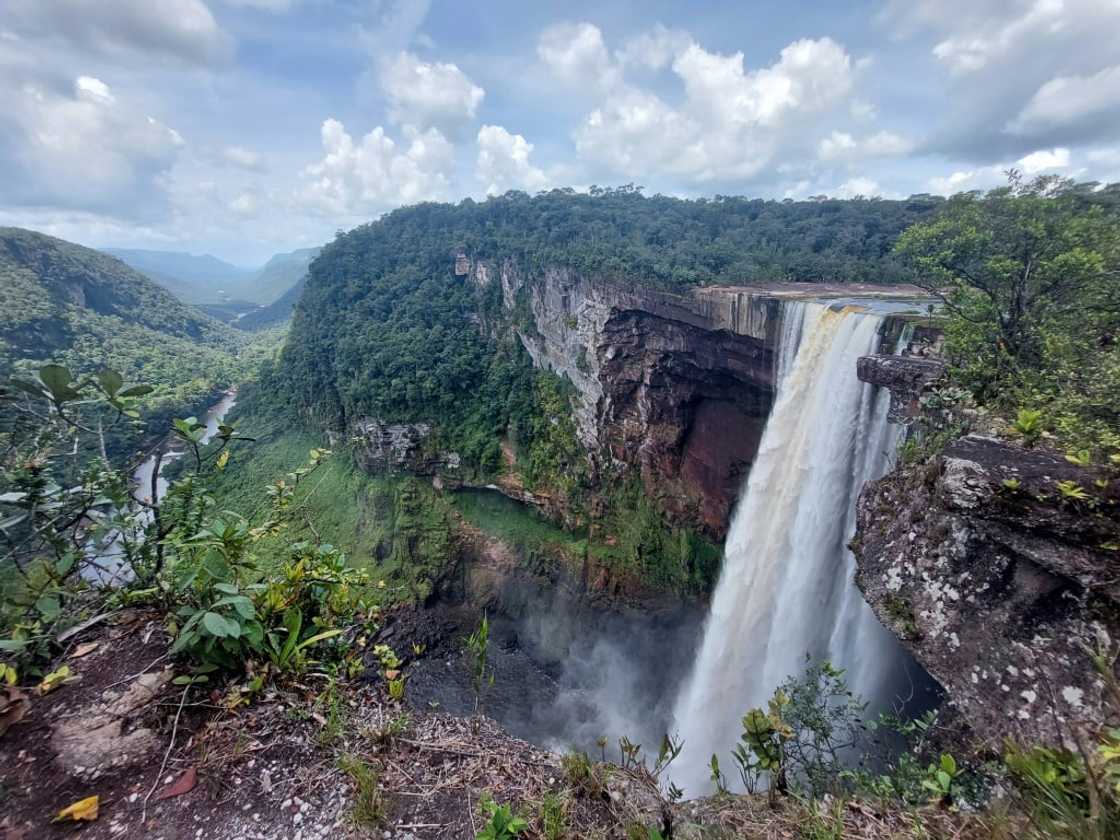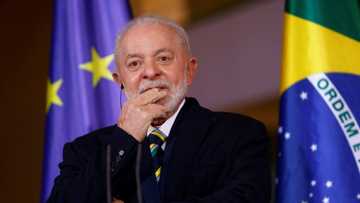Venezuela, Guyana tensions rise over disputed oil-rich region

Source: AFP
Tensions rose between Venezuela and Guyana Tuesday as Caracas proposed a bill to declare a Venezuelan province in a disputed oil-rich region and ordered the state oil company to issue licenses for extracting crude there.
Venezuela's President Nicolas Maduro proposed at a government meeting that a bill be sent to the National Assembly for the creation of a "Guyana Esequiba" province in the region Guyana has administered for over a century.
He also said oil, gas and mining licenses must be issued immediately.
Venezuela held a controversial referendum on the region's fate Sunday that yielded an overwhelming 95-percent "yes" vote for Caracas' designs on Essequibo, or Esequiba as it is known in Venezuela.
Earlier Tuesday, Guyana said it would approach the UN Security Council for help if Venezuela makes any moves following the referendum, which it had unsuccessfully sought to stop with an urgent application to the International Court of Justice (ICJ) in The Hague.
Guyana's Attorney General Anil Nandlall told AFP "any action or any attempt to take any action pursuant to the referendum will necessitate a resort to the UN Security Council as an injured party."
PAY ATTENTION: Watch the hottest celebrity stories on our YouTube channel 'Briefly TV'. Subscribe now!
He said Guyana would invoke Articles 41 and 42 of the UN Charter which can authorize sanctions or military action to maintain or restore international peace and security.
"In terms of military, it (the UNSC) can authorize the use of armed forces by member states to assist in the enforcement" of ICJ orders, Nandlall said.
'Existential' threat
Guyana has administered Essequibo for over a century. The region makes up more than two-thirds of its territory and is home to 125,000 of Guyana's 800,000 citizens.
Litigation is pending before the ICJ over where the borders should lie.
Guyana, a former British and Dutch colony, insists the frontiers were determined by an arbitration panel in 1899.
But Venezuela -- which does not accept the ICJ's jurisdiction in the matter -- claims the Essequibo River to the region's east forms a natural border and had historically been recognized as such.
The dispute has intensified since ExxonMobil discovered oil in Essequibo in 2015.
Caracas called Sunday's referendum after Georgetown started auctioning off oil blocks in Essequibo in August.
Guyana had asked the ICJ to block the vote, which it considered an "existential" threat to its existence.
On Friday, the court urged Caracas to take no action that might affect the disputed territory, but did not grant Georgetown's request for urgent intervention.
Instead, it ruled that Venezuela "shall refrain from taking any action which would modify the situation that currently prevails in the territory in dispute."
On Sunday, Guyana's President Irfaan Ali warned that if Venezuela ignored the court order, "it will be a great injustice to the people of Venezuela because ultimately that path would lead to the suffering of the people of Venezuela."
Voters were asked to respond to five questions in the referendum, including whether Venezuela should reject the 1899 arbitration decision as well as the ICJ's jurisdiction.
They were also asked whether Venezuelan citizenship should be granted to the people -- currently Guyanese -- of a new "Guyana Esequiba State."
PAY ATTENTION: Сheck out news that is picked exactly for YOU - click on “Recommended for you” and enjoy!
Source: AFP



